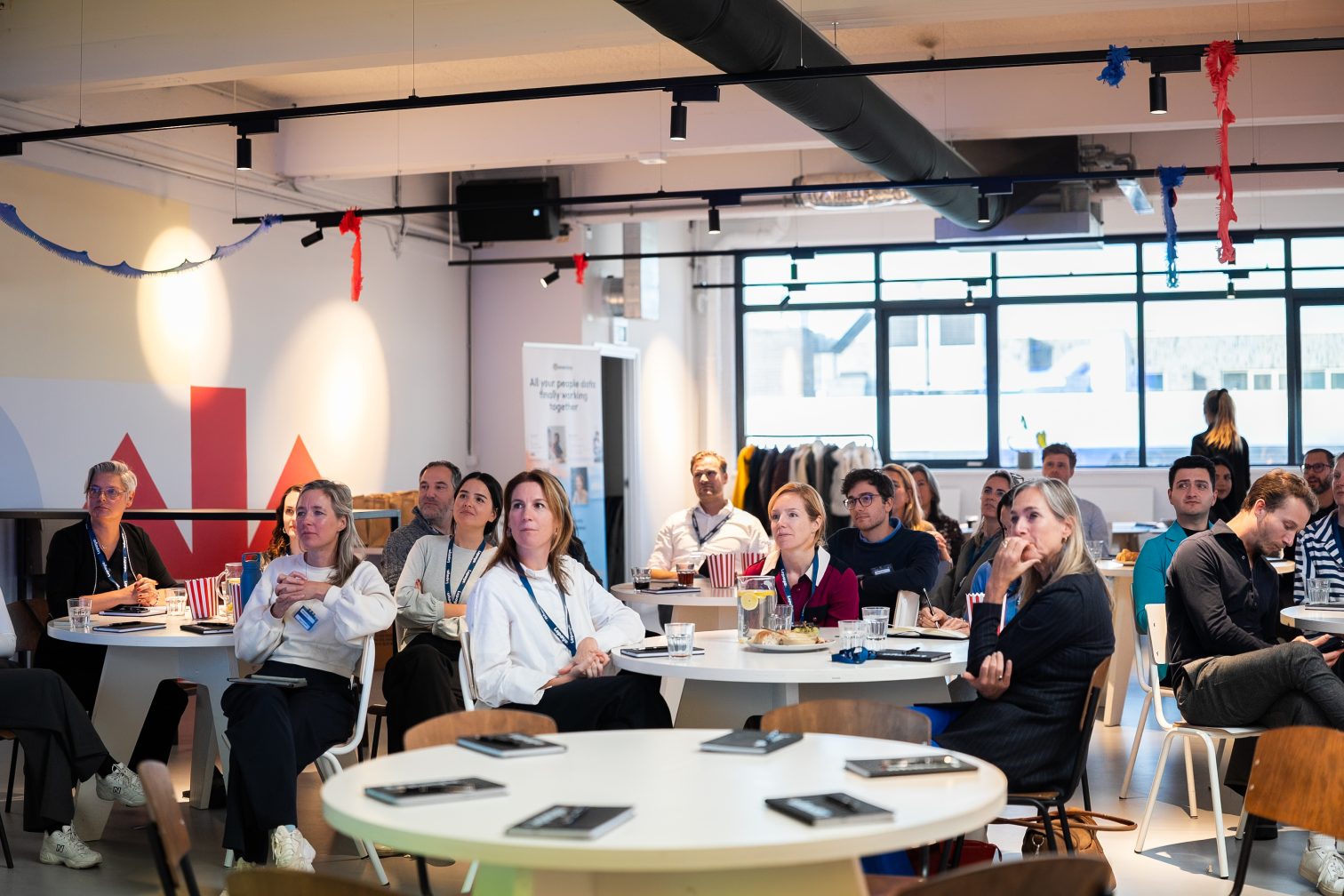How HR leaders can build people-centric & high performing workplaces

- Organizations that prioritize their people's development will unlock the most value
- Skills-based people strategies improves hiring processes and talent's career mobility opportunities
- An exceptional employee experiences leads to higher customer satisfaction
- Upskilling middle managers ensures businesses retain their top performing talent
- HR leaders play a crucial role in aligning people's development with the future of work
People have never been more critical to economic growth. As organizations move away from an industrial economy to one driven by skills and human traits, the capabilities and development of employees becomes paramount.
More than ever, it’s the connection between employees, employers and customers that generates revenue, innovation, resilience and productivity. Despite this, many organizations are falling short in supporting people’s performance.
More than half of UK workers report that their work has become more intense, leading to higher burnout, stress and attrition rates. Why is this the case?
While HR managers work to address skill and performance gaps, many organizations remain focused on extracting value from employees rather than fostering people’s wellbeing and development.
With change happening so fast, how can people leaders build high performing and productive workplaces while strengthening employees’ mental health, skills and career mobility?
Speaking to HR and learning experts at HR Technology Europe in Amsterdam, here are 3 key insights we uncovered.
1. Skills-based people management boosts talent retention & career mobility
“When you look at key changes in the world, the impact of technology and the way we think about the workforce, there is a tremendous transition that has to happen and that’s where the skills have to come in,” Michel Stokvis, Senior Director, Randstad Innovation Fund.
As jobs evolve with new technologies, the half-life of skills has dropped to less than two and a half years. For organizations, this signalizes a need to rethink reskilling strategies. In short, employee development has to shift from careers to experiences, from verticals to networks and from job titles to skills.
Some companies are already taking the lead. Rabobank, for example, is pioneering new ways to screen talent’s skill sets using “verified digital credentials”. With the right tech to track and authenticate these credentials, the bank can save days, sometimes weeks, in matching new candidates' skills with their organizational growth needs.
"To start with we looked at the current business of mortgages and the process to get mortgages to our customers supported by our award winning app for its ease of use.
But in the HR process, we still use old fashioned documents you have to get from university. How can we shorten the process, for example, to apply for a new job, and make that process easier for the candidates but also the employees?" Robert de Lange, Senior People Analytics Researcher, Rabobank
In the future, Rabobank’s employees will be able to automatically match their skill profiles with internal vacancies and identify training needs, reducing the bank’s need to hire and increasing talent’s opportunities to expand their careers.
While at the same time, common skills credentials can help talent move across different financial institutions and benefit the industry’s hiring process as a whole.
“From the logistics perspective, there are a lot of people going from Rabobank to ING to ABN and the other way around it’s the same. So you just make the whole process easier for everyone and it’s a win-win game for the whole industry,"
Robert de Lange, Sr. People Analytics Researcher, Rabobank.
2. Creating exceptional employee experience at the BBC improves customer satisfaction
The employee and customer experience are inseparable from each other. Organizations that continuously support their people’s development ultimately deliver better services to their clients.
“Employee experience is important because you want to deliver world-class experience to the people who work for you and we want to create employee experience that’s linked with customer experience,” Uzair Qadeer, Chief People Officer at the BBC.
Recently, the British Broadcast Corporation (BBC) launched a new people strategy - ‘A great place to work’ - focused on creating a workplace that offers employees more dynamic skills training and deepens their feeling of belonging.
How has the BBC created this strategy? Their HR team has developed a framework called ‘The 5 Es of employee experience’.
- Entice - develop appealing employer branding and job descriptions.
- Enter - rapidly onboard people on your values and culture to set the right mindset.
- Empower - offer trainings that are aligned with your organization’s strategic direction.
- Engage - create the right policies so that your people feel a sense of belonging in your company.
- Exit - make people ambassadors of your organization if they leave.
The BBC is also adapting their people strategy to the evolving nature of career mobility. With the ‘80/20 Hot Shoes’ initiative, employees can step out of their day job for 20% of the time, giving them the chance to learn new skills, experience a different part of the BBC and reinvent their careers.
3. Upskilling middle managers helps to retain high performing talent
Leaders’ capabilities have never been more important to organizational success. With advances in technology, layoffs and economic instability, they are tasked with guiding their teams through difficult circumstances.
“Managing teams in flourishing times is challenging enough. When you add really difficult situations, it’s a tall ask, especially for those middle managers that are gluing different layers of the organization together.” Michelle Norwood, Learning & Development Manager, Frontier Economics.
As middle managers bridge the gap between senior leadership and frontline employees, their performance creates a ripple effect on team productivity and morale.
Therefore, HR teams face a new dilemma. With managers having a direct impact on teams’ retention rates and business outcomes, HR has to identify, clarify and train the precise skills they need in their role, especially for low performing and first-time leaders.
While predicting and pinpointing these skills is difficult, managers should focus on developing trust within teams to support wellbeing and being up to speed on market trends to make the right decisions for the business.
“Managers are the glue that holds different layers of the organization together. They need to focus on active listening, building trust, and channeling feedback across all levels of the organization.
Since managers have a multifaceted role, acting as connectors, enablers, messengers, and multipliers, they require additional support from HR,"
Claire Rosenthal, Head of People Enablement & Community, Leapsome.
HR leaders can rebuild workplaces and create more value for people
“2020 was the year of rethinking HR’s role in transformation. 2024 is the year of rebuilding it,”
Madeline Laurano, Co-founder, Aptitude Research Partners.
HR must reclaim its strategic role as the business partner it became during the pandemic. Their job is to reshape training initiatives and align their people’s development with the future of work.
In practice, this means creating a more purpose-driven, healthier and upskilled workforce that contributes to organizational growth.
Companies like the BBC and Rabobank are leading this change with skills-based employee experience and career mobility programs. They have proven that when organizations prioritize the well-being and development of their workforce, productivity and high performing workplaces naturally follow.

We offer a scalable employee training solution. It lets you continuously upskill your people.
Book a call%20(1).png)
Related articles
Ready to drive impact together?
Close skill gaps, accelerate growth, and future-proof your workforce.












.jpg)


%2520(1).png)
